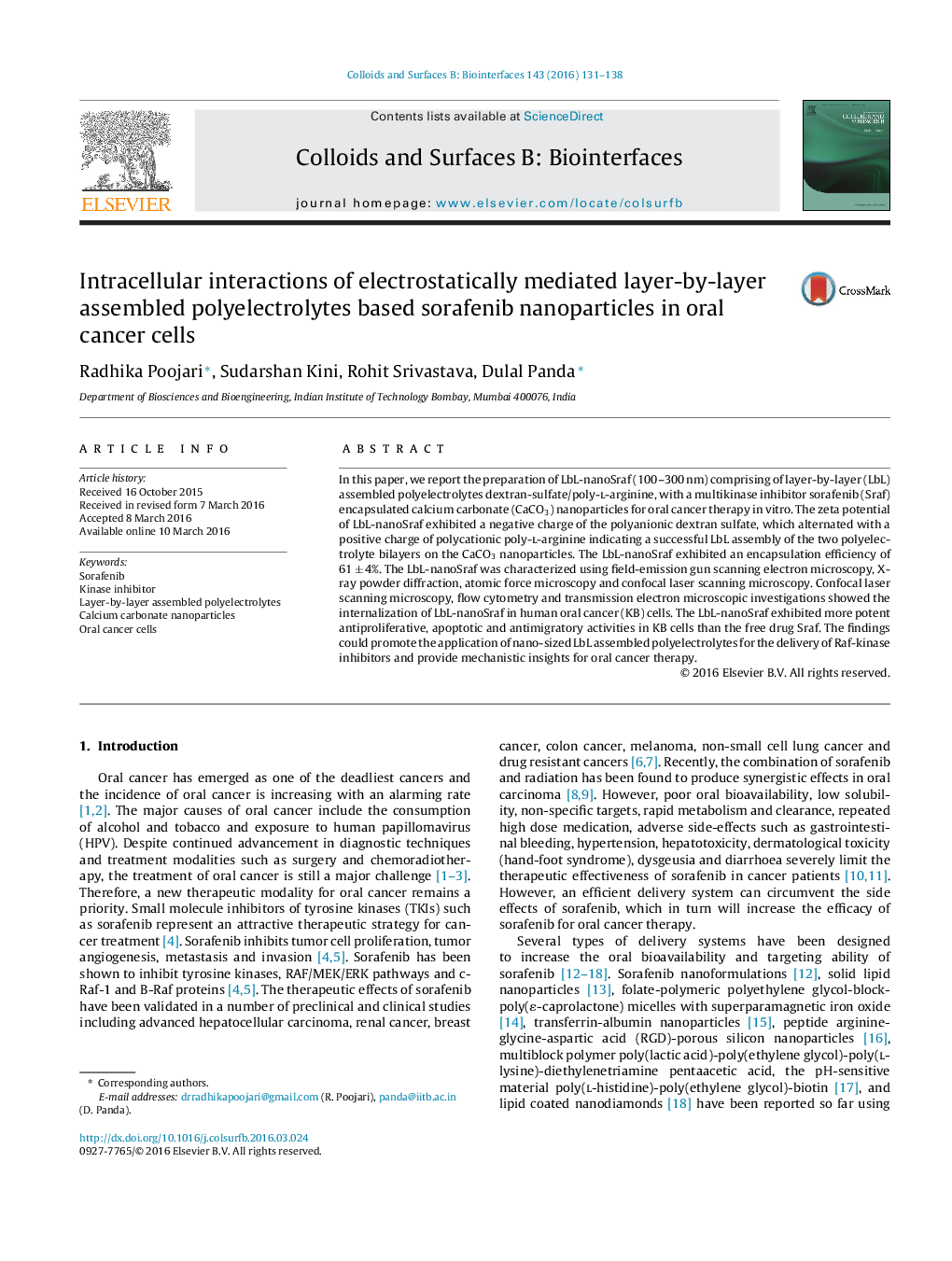| کد مقاله | کد نشریه | سال انتشار | مقاله انگلیسی | نسخه تمام متن |
|---|---|---|---|---|
| 599032 | 1454261 | 2016 | 8 صفحه PDF | دانلود رایگان |

• Oral cancer cells efficiently internalize sorafenib nanoparticles.
• Sorafenib nanoparticles exhibit potent antiproliferative activity.
• Sorafenib nanoparticles display strong antiapototic activity.
• Sorafenib nanoparticles suppress the migration of oral cancer cells.
In this paper, we report the preparation of LbL-nanoSraf (100–300 nm) comprising of layer-by-layer (LbL) assembled polyelectrolytes dextran-sulfate/poly-l-arginine, with a multikinase inhibitor sorafenib (Sraf) encapsulated calcium carbonate (CaCO3) nanoparticles for oral cancer therapy in vitro. The zeta potential of LbL-nanoSraf exhibited a negative charge of the polyanionic dextran sulfate, which alternated with a positive charge of polycationic poly-l-arginine indicating a successful LbL assembly of the two polyelectrolyte bilayers on the CaCO3 nanoparticles. The LbL-nanoSraf exhibited an encapsulation efficiency of 61 ± 4%. The LbL-nanoSraf was characterized using field-emission gun scanning electron microscopy, X-ray powder diffraction, atomic force microscopy and confocal laser scanning microscopy. Confocal laser scanning microscopy, flow cytometry and transmission electron microscopic investigations showed the internalization of LbL-nanoSraf in human oral cancer (KB) cells. The LbL-nanoSraf exhibited more potent antiproliferative, apoptotic and antimigratory activities in KB cells than the free drug Sraf. The findings could promote the application of nano-sized LbL assembled polyelectrolytes for the delivery of Raf-kinase inhibitors and provide mechanistic insights for oral cancer therapy.
Figure optionsDownload as PowerPoint slide
Journal: Colloids and Surfaces B: Biointerfaces - Volume 143, 1 July 2016, Pages 131–138